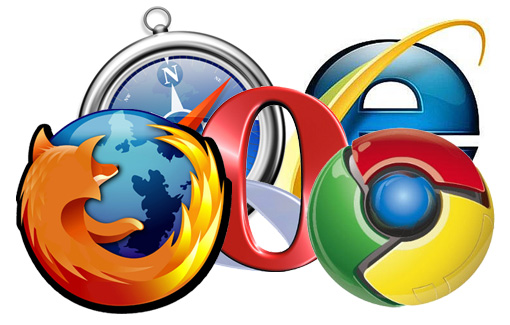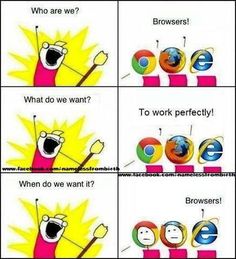
I remember when I had my first interview at Stardock.
One of the people in the room, a guy named Kris, looked at me and fired off a series of PC user questions, things like: what kind of computer do you have, what operating systems do you run, and what web browser do you use?
I answered each, and when I got to the web browser part and answered Chrome, he fired back with a question that caught me off-guard.
“Why?”
...honest answer? I have no idea why. It was just what I used (and still use)! I don’t remember exactly what I said - though, considering I’m about to hit my 6 year anniversary next month here at Stardock, I’m guessing I answered the question to his satisfaction - but I do remember pausing after the interview to re-ask myself that same question.
Why did I use Chrome over any other web browser?
I mean, some of the reasoning is straightforward. I like its design, it is fast and efficient, and it has a solid amount of security. However, other web browsers, especially nowadays, have the same features - so why choose Chrome, specifically?
Prior to Chrome, I had always used Firefox. I didn’t ever have any issues with it, so my switch to Chrome must have been because a friend recommended it to me or because I needed it for something specific - I honestly don’t remember anymore.
Anyway, the browser landscape has changed significantly over the last few years. What’s most important to us as PC users in a browser certainly has some variables, but in general I think we’re concerned about three primary things: Speed, Security, and Customization.
Speed
Obviously, we don’t want to have to wait forever for a website to load, so speed is one of the most important qualities in a web browser. Some web browsers demand a lot of your system’s resources, while others take up less and run a bit more smoothly in the background. These factor into the browser’s speed.

It’s important to look at a browser’s compatibility, also - they need to be able to work with your current version of Windows (or whatever OS you’re using) and need to run efficiently. How much memory a web browser takes up is also important when you’re factoring in elements of speed and efficiency.
Security

I talked about this in another blog, but the Internet can be a bit of a murky place to navigate at times. There are lots of anti-virus programs out there to help keep your PC safe, but one of the first lines of defense is going to be a secure web browser.
Some browsers offer full suites of security tools to protect your identity and shield against malware, while others don’t have a method for blocking cookies and ads efficiently. It’s not a good idea to rely on your browser alone to provide defenses against someone who might want to compromise your identity online, but it’s a good first line before you add on the other bells and whistles.
It’s worth noting that Microsoft Edge now comes with a built-in password manager, which is an awesome security feature to have in a web browser. The other browsers haven’t quite caught up to this just yet.
Customization
The tools and add-ons that you can apply to your web browser can make or break your experience when surfing websites online (do people still say “surf the web” anymore, or is that an old-person thing?).
Some tools do things like strip webpages of clutter, leaving only the text, which makes it much easier for you to focus. A lesser known browser, called Opera, even has a built-in cryptocurrency wallet. It is also known for its Speed Dial add-on, which consists of pinned tiles on your home screen and a toolbar for accessing frequently used services.

Edge offers voice-reading of web pages, Firefox lets you instantly save a page to Pocket, and Chrome for Android has tab groups and dark mode. All of these things boil down to personal preference and what tools are important for you to have in order to use your web browser in a way that will work for you.
PC Magazine has a really excellent article about the most popular browsers and what makes them unique from one another. They also wrote one on the best alternative web browsers (half of which I’d never heard of). I definitely recommend giving them a read!
What web browser do you use? Why did you make that choice? Share with me!